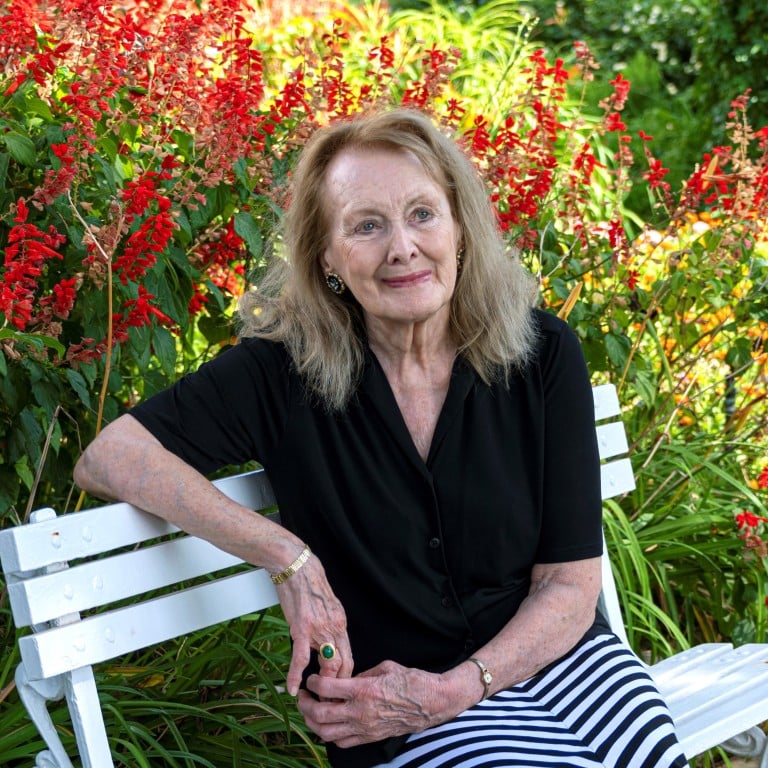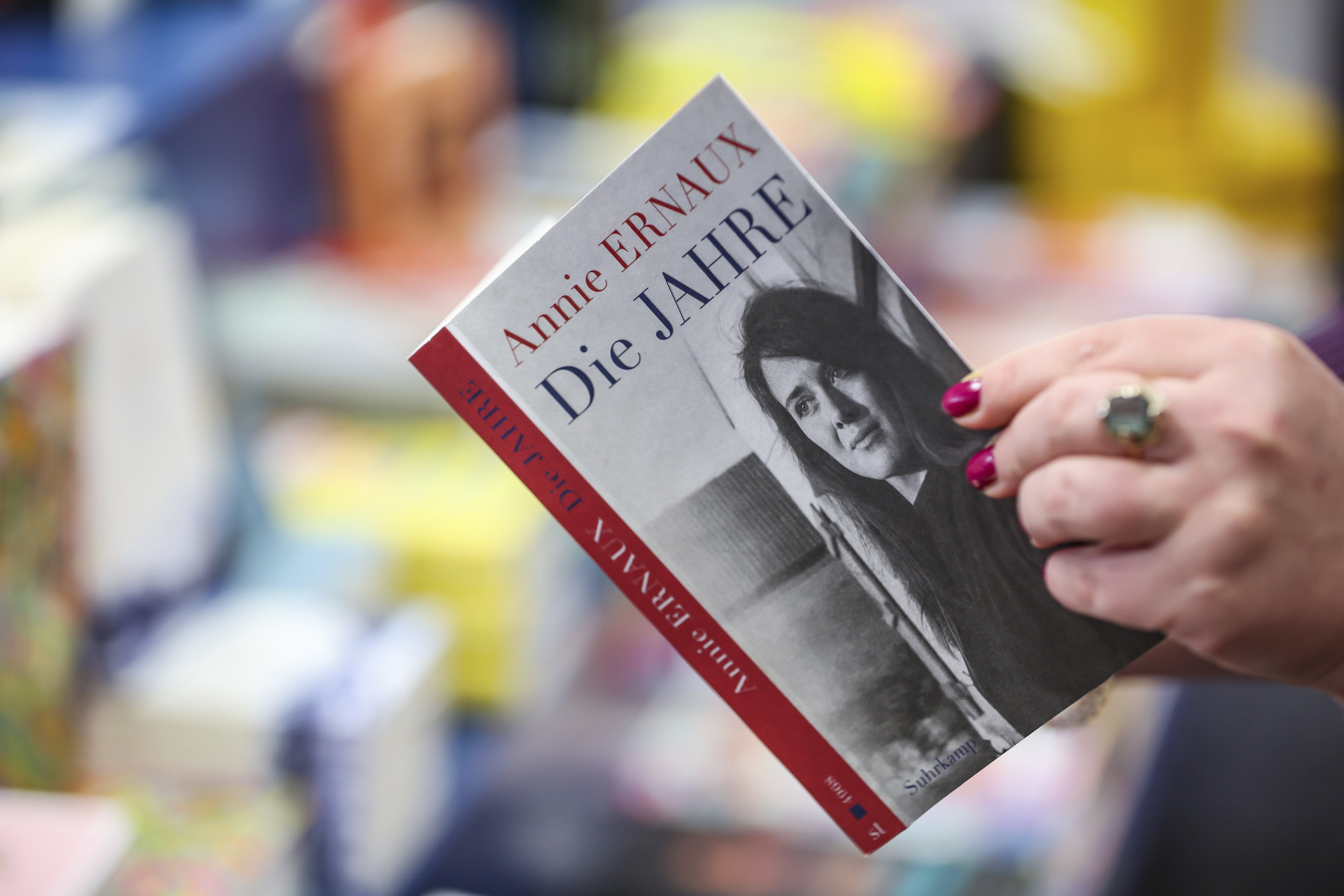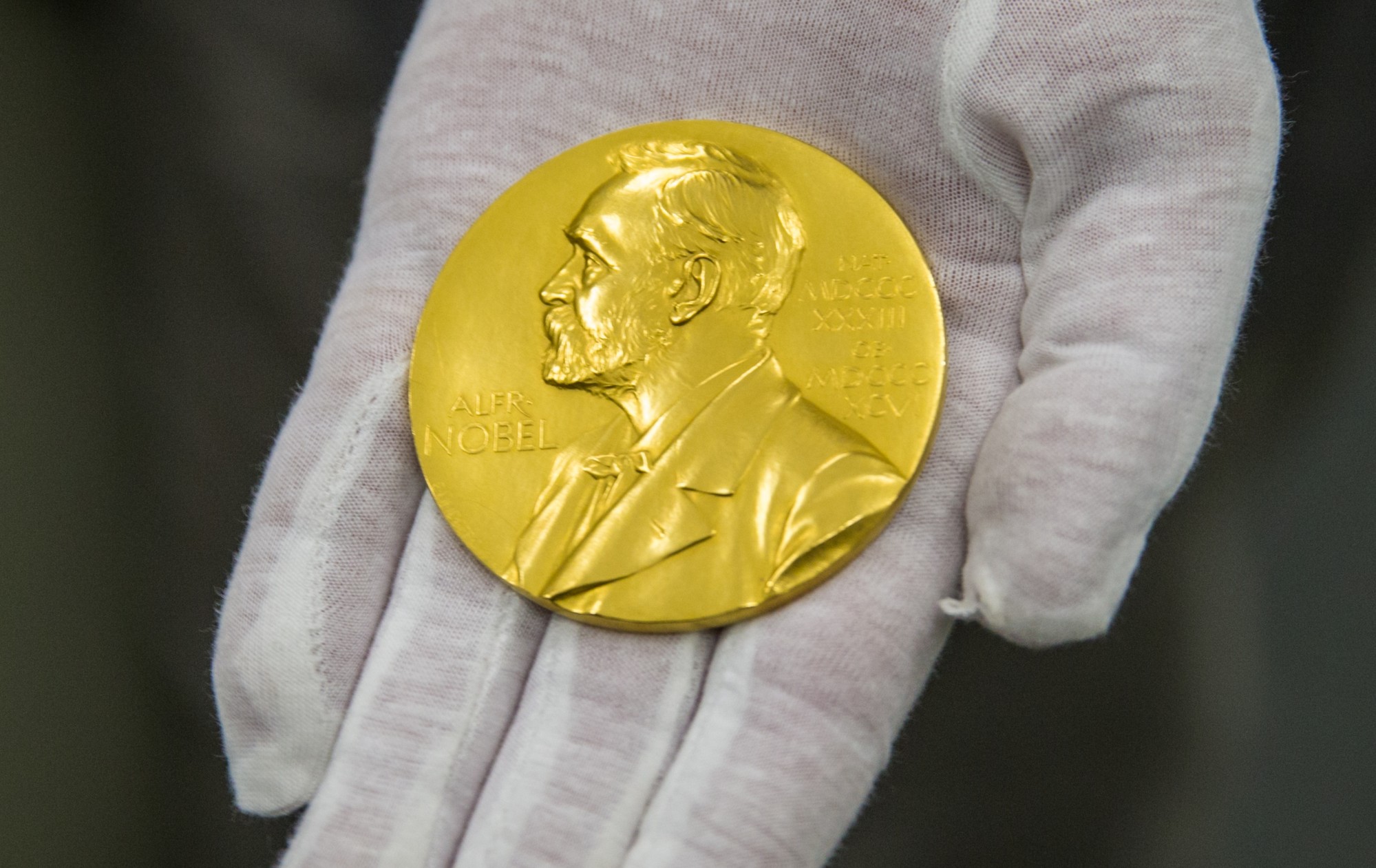
Nobel Literature Prize awarded to French author Annie Ernaux for her ‘admirable and enduring’ work
- Honoured ‘for the courage and clinical acuity with which she uncovers the roots, estrangements and collective restraints of personal memory’, the jury said
- The Literature Prize is the fourth Nobel award announced in Stockholm, Sweden, this week, following medicine, physics and chemistry prizes
French author Annie Ernaux, known for her deceptively simple novels drawing on personal experience of class and gender, won the Nobel Literature Prize on Thursday, the jury announced.
Ernaux, 82, was honoured “for the courage and clinical acuity with which she uncovers the roots, estrangements and collective restraints of personal memory”, the jury said.
Interviewed on Swedish television immediately after the announcement, Ernaux called it a “very great honour” and “a great responsibility”.
Her more than 20 books, many of which have been school texts in France for decades, offer one of the most subtle, insightful windows into the social life of modern France.
Above all Ernaux’s crystalline prose has excavated her own passage from working-class girl to the literary elite, casting a critical eye on social structures and her own complicated emotions.

Her legacy is the grit in the French literary oyster, or as she puts it, to offer an alternative to the “unconditional admiration for the pretty phrase”.
“In her writing, Ernaux consistently and from different angles, examines a life marked by strong disparities regarding gender, language and class”, the Swedish Academy noted.
“Her work is uncompromising and written in plain language, scraped clean”, it said.
“And when she with great courage and clinical acuity reveals the agony of the experience of class, describing shame, humiliation, jealousy or inability to see who you are, she has achieved something admirable and enduring”.
On Monday, the Medicine Prize went to Swedish paleogeneticist Svante Paabo for his discoveries on the genomes of extinct hominins and human evolution.
On Tuesday, physicists Alain Aspect of France, John Clauser of the United States and Austria’s Anton Zeilinger were given the Physics Prize for developing experimental tools that helped prove quantum entanglement – a phenomenon Albert Einstein dismissed as “spooky action at a distance”.
On Wednesday, scientists Carolyn Bertozzi, Morten Meldal and Barry Sharpless won the Chemistry Prize for discovering reactions that let molecules snap together to create desired compounds and that offer insight into cell biology.

With the exception of economics, the prizes were endowed by Swedish industrialist Alfred Nobel (1833-96), the inventor of dynamite.
The first awards were handed out in 1901, five years after Nobel’s death.
Each prize is worth 10 million kronor (nearly US$900,000) and will be handed out with a diploma and gold medal on December 10 – the date of Nobel’s death in 1896.
Last year, the prestigious Literature Prize award went to British-Tanzanian author Abdulrazak Gurnah. American poet Louise Gluck won it the year before.
After Thursday’s announcement, the Nobel season continues Friday with the highly-anticipated Peace Prize, the only Nobel announced in Oslo.
Punters have suggested this year’s prize could sound the alarm over the war in Ukraine or the climate.
The Economics Prize wraps things up on Monday, October 10.
